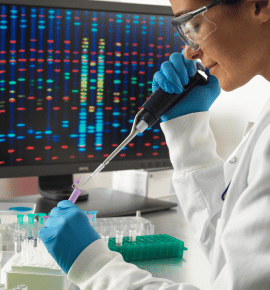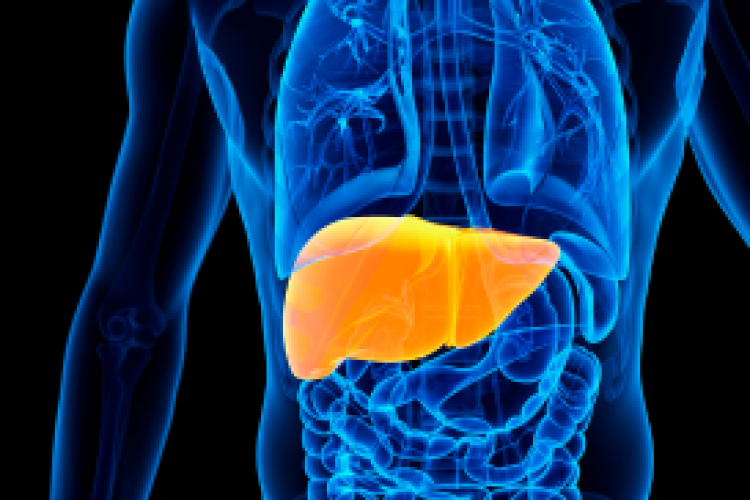
Mutations in certain genes can increase the lifetime risk for cancer. Women who inherit a mutation in genes such as BRCA1, BRCA2, and PALB2—either from their mother or father—have a much higher risk of developing breast and other cancers. If you have a personal or close family history of breast, ovarian, or pancreatic cancer, your doctor may recommend that you go for genetic testing.
Three of the most well-known genes associated with increased risk of breast and/or ovarian cancer are BRCA1, BRCA2, and PALB2. Normally, these genes keep breast cells growing and prevent the growth of cancer cells. But when these genes contain inherited mutations, they don’t function normally and increase the risk of breast cancer.
In addition to an increased risk of breast cancer, men and women who have a BRCA mutation also might be at increased risk for pancreatic cancer, ovarian cancer, prostate cancer, and melanoma.
Knowing whether you carry a mutation in one of these genes can be very helpful. Information enables patients to be proactive with their health and empowers family members by providing vital genetic information to assess whether they too may be at increased risk, so they can best care for their health.
The First Step
If you’re concerned about your family’s history of cancer, talk to your doctor about your cancer risks. Your doctor can help you decide if you should speak with a genetic counselor. Genetic counseling will help you understand your inherited risks for cancer and what you can do to reduce your risk.
Who Should Get Tested?
If you have a personal or family history of cancer, your doctor may recommend testing. The recommendation depends on many factors, including the age at which you or a family member were diagnosed; how close the family member is; the type of cancer and how extensive it is; and how many people in the family have cancer.
Men with a close family history of breast or ovarian cancer also may be advised to seek genetic counseling. Men can develop cancer-related to BRCA mutations, but at a lower rate than women. “In men, BRCA mutations can be associated with breast, prostate and pancreatic cancers. If a man or woman has the mutation, there is a 50 percent chance they will pass it along to each child they have.
Genetic Impact
According to the National Cancer Institute, about 13 percent of women in the general population will develop breast cancer some time during their lives. In contrast, 55 to 72 percent of women who inherit a harmful BRCA1 variant and 45 to 69 percent of women who inherit a harmful BRCA2 variant will develop breast cancer by 70 to 80 years of age.
Genetic counseling can help you understand whether testing is appropriate and how the information from testing can influence your medical care. A genetic counseling session generally lasts about 45 minutes. To get the most out of the session, it’s useful to have a detailed family medical history from both your mother’s and father’s side of the family, including information (and medical records if available) about family members who have had cancer.
What's Involved in a Genetic Test?
A person undergoing a genetic test will give either a blood or saliva sample that’s analyzed to look for mutations. Genetic counselors at The Breast Center test for up to 35 genes (and sometimes more), depending on a person’s personal or family history. If a patient wants to do the test at home, a saliva test kit will be sent to them. The testing can look for mutations that increase the risk of breast, ovarian, prostate, pancreatic, gastrointestinal and skin cancer.
During the genetic counseling session, it will be determined whether a patient is likely to meet their insurance requirements for testing. If the requirements aren’t met, but testing is still recommended or desired, it may cost anywhere from $0 to $250 out-of-pocket.
What If You Test Positive?
If you test positive for a genetic mutation that impacts cancer risk, there are steps that, in consultation with your doctor, you may decide to take to reduce your risk of developing breast cancer. These include:
Enhanced screening. Women who test positive for mutations in high-risk genes may choose to start mammography screening at a younger age, have more frequent screening than is recommended for the general population, or have MRI screening in addition to mammography.
Risk-reducing surgery. Some women who test positive choose to have their breasts surgically removed to reduce their risk of breast cancer. To help lower their risk of ovarian cancer, some women may decide to have their ovaries and fallopian tubes removed.
Chemoprevention. This is the use of medicines to reduce the risk of cancer.
In women who are already undergoing treatment for breast cancer and have a positive genetic test, the oncologist may consider certain additional treatments that are molecularly targeted.
Personalized Screening
Knowing if you inherited a genetic predisposition for breast cancer allows your doctors to better tailor your breast screening program and will help your doctor choose the most effective treatment for you.
If you test negative, it can help relieve lifelong anxiety. For example, for a woman with a family history of breast cancer, the likely screening recommendation would be an annual breast MRI along with a mammogram. Testing negative would allow you to follow the general population breast screening recommendation of a yearly mammogram.
To learn whether you are at higher risk of developing breast cancer, make an appointment at The Breast Center at Montefiore Nyack Hospital by calling 845-348-8508.



 Upcoming Events
Upcoming Events



